Alena Walker
Writer & Campaigner
Shaped by place, motherhood, and memory, Alena Walker is turning grief for a vanishing natural world into stories of hope, agency, and return.
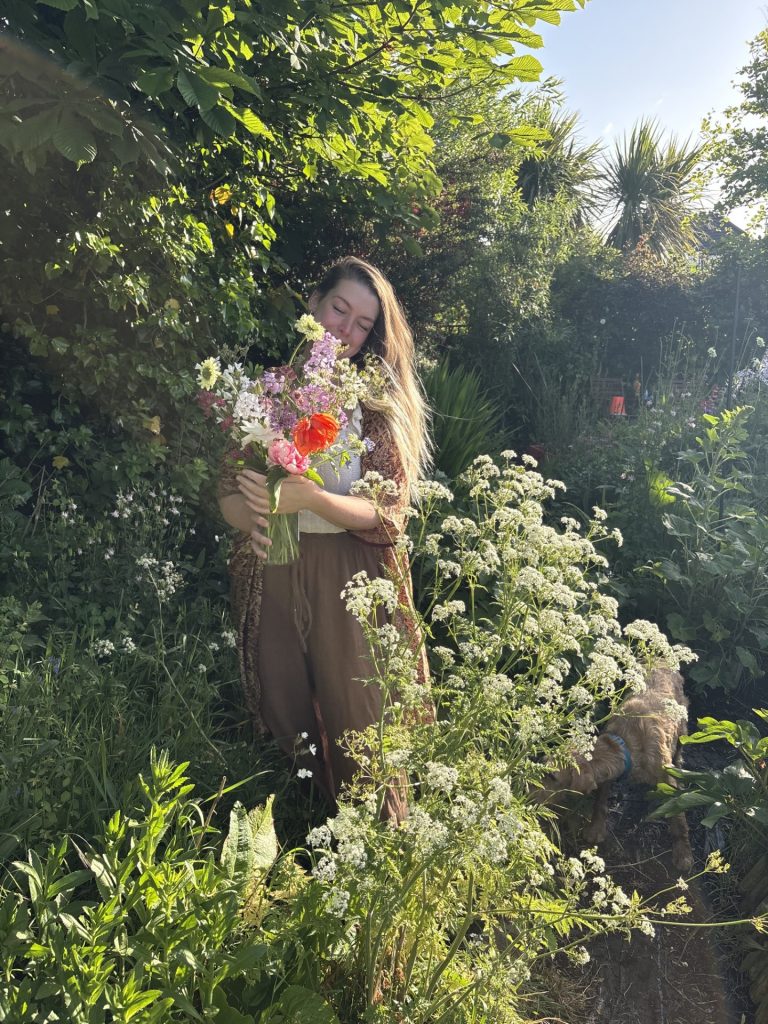
Corncrakes is actually a part of that,” says Alena Walker, reflecting on the origins of her new project, Nature Remembered. Remarkably, it wasn’t until last year that she made her first trip to Rathlin Island – a surprising detail for someone who grew up so close to the North Coast. “Which is crazy,” she says. “Apparently I’m not alone in that.” The visit came during a time of personal upheaval: a move to Ballycastle and the arrival of her daughter, Alba. “She was maybe about four months old when we took her.”
It was there, among the spring stirrings of island life, that Walker heard the corncrake for the very first time – a loud, rasping call unlike anything she’d encountered before. “It was exciting,” she says. But the thrill of that moment soon gave way to a more sobering realisation: the very sound that felt so alive on Rathlin was now absent from the mainland, where corncrakes had once thrived. That contrast – vivid presence in one place, haunting silence in another – planted the seed for a deeper exploration of memory, nature, and what we pass on.
“The anxiety that I have about nature loss has really motivated me to try and piece together that timeline of memory,” she says. “If we don’t take the time to bring it together, curate that and grieve that, we just completely forget it.”
Motherhood intensified that urgency. “It’s made me think about the landscape that Alba is going to inherit… there are memories that people in Northern Ireland have of corncrake in fields… and that sort of disappeared.” That sense of loss extends beyond birdsong. Walker recalls childhood moments filled with insects – clouds of moths drawn to evening lights, windshields splattered with bugs on summer drives, the unmistakable hum of abundance. “That has completely stopped,” she says. “You can have your window open and you might get the occasional fly, but there’s nowhere near what we had when we were younger.” For her, these silent absences aren’t just ecological – they’re personal. “Now kids, much like Alba, are reading about butterflies in a book. But I don’t think I could go out and point to her an abundance of butterflies in the back garden.”
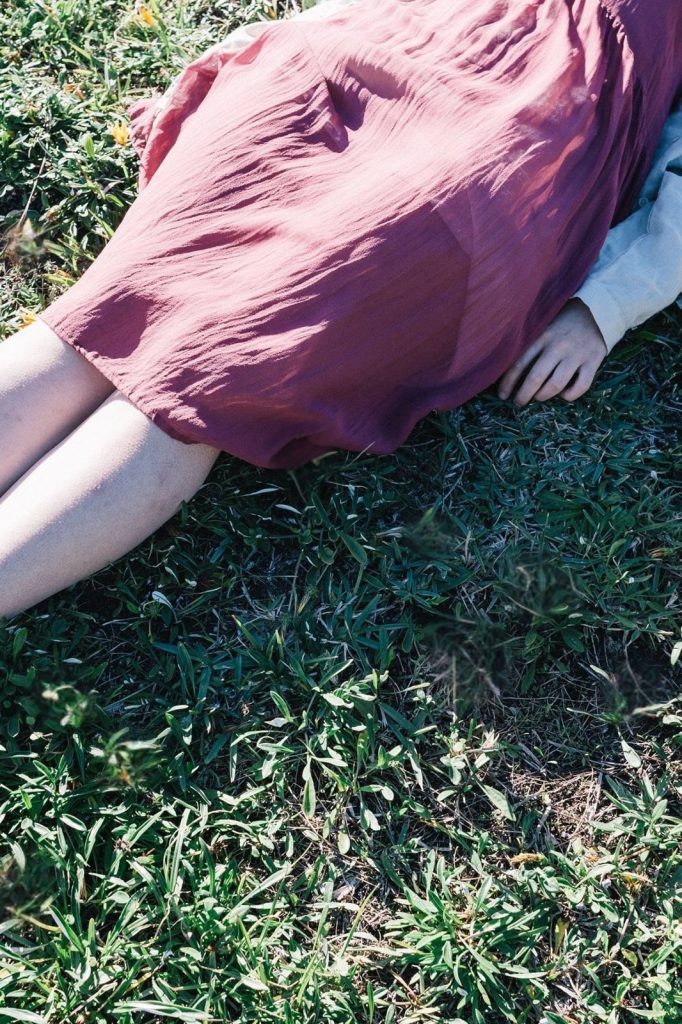
Hope as Creative Practice
Walker brings her skills as a writer and communications specialist to causes that bridge nature and culture. She previously worked with Headliners, helping young people develop their writing and storytelling, and later became Head of Communications at the Nature Friendly Farming Network, where she helped advocate for sustainable agriculture and amplify the voices of small-scale farmers. These roles laid the foundation for her belief in narrative as a powerful tool for change. Now, as a campaigner with UK Youth for Nature, she’s found a rare balance of urgency and optimism. “There’s a really lovely feeling… the volunteers that work there approach the challenge of nature loss through their own unique creative lens.”
“It’s trying to take that eco anxiety and channel it into making something that makes people stop and think,” she explains. “Channelling that anxiety into some sort of art form, to me, is a way of moving from a cynical, quite depressing place… into feeling really enlightened and hopeful.” That shift, she adds, is only possible in a creative and collaborative space: “I enjoy working somewhere where I have that sense of lift in dealing with something that is so heavy. It’s really lovely.”
Against Gatekeeping
Walker is clear-eyed about the barriers that limit public connection to nature. “Almost a sense of gatekeeping? I think in the experience of nature we need to break down barriers so that people can access nature in a lot more friendly way.”
She points to working in the conservation sector, where technical knowledge becomes a competitive tool: “There would be a sense that you couldn’t go out and identify a bird or a plant unless you’re 100% sure it was the plant or the bird that you were observing.” It’s this kind of high-stakes correctness that she believes alienates many people who are curious but unsure where to start.”
This is where social media, she says, has played a surprising role. “Instead of being influenced to buy something, you can be influenced to learn something.” She cites @outsidewithlira as a standout voice: “She’s just got such a way of being able to reach into communities that just don’t have access to nature, especially in urban environments.” What Walker finds powerful is the tone and accessibility of such creators: “She’s really able to make people feel welcome in nature, without needing to have all the right gear or all the right knowledge. That sort of warm, inclusive approach opens up spaces that have been historically closed off – especially in urban contexts where natural access is often limited.” For Walker, this represents a model of nature communication that prioritises storytelling, lived experience, and emotional connection over rigid classification or scientific gatekeeping.
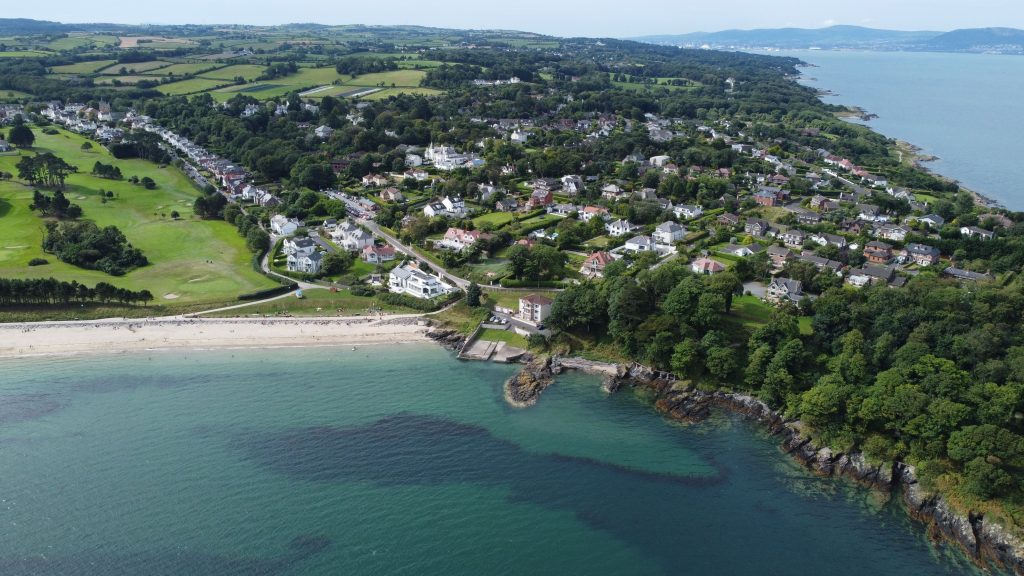
Learning to Grow
Walker didn’t grow up in a family that grew food, but began to shift her lifestyle as she became more involved in climate and nature movements. “There was such a disconnect between how I lived and how I wanted to live and what I believed in.”
From studying fashion journalism with a focus on sustainability, she found herself questioning the entire industry. “I don’t think you can [make it sustainable]. Ultimately, we need to buy a lot less.” Her experience working with major fashion brands – and later in marketing – brought her face-to-face with the depth of greenwashing embedded in global supply systems. “My job was branded as having this focus of sustainability… and then I’m trying to sell people clothes that are very expensive, with a very fancy label, and tell them it’s sustainable.” At another point in her early career, she was asked to market a poultry agri-food business renowned for its intensive practices: “They had the most horrendous pollution stories. So it sat really uncomfortably with me. That moment put the final nail in the coffin of me working in FMCG marketing.”
That reckoning led her to food. “Growing my food started as a small act of self-sufficiency,” she explains, but it quickly became a deeper interrogation of the food system itself. The act of planting, tending, and harvesting sharpened her awareness of the systems that govern how food is grown and distributed. “There was a moment of reckoning where I just thought about the utter insanity of it all in terms of how our food is grown,” she says. Her experience in marketing and journalism had already exposed her to the structural issues, but growing food made them personal. “Even just understanding the rhythms of nature and the seasons… is quite empowering.” She adds, “It’s taught me ‘enoughness’ – how to be in relationship with the land rather than divorced from it.”
The Power of Local
Walker is a member of the Land Workers Alliance and previously worked as Head of Communications for the Nature Friendly Farming Network. She’s seen firsthand the challenges and resilience of small-scale food systems.
“Food is too cheap… it’s punishing work,” she says of small growers. “There’s a lot more that communities need to do to support local growers in being able to sustain their businesses.” She recalls a local example: “There was a really great walled garden grower that I bought from when I lived down in Helen’s Bay. And they said they struggled because the labor they were putting into growing the vegetables wasn’t proportionate to the cost of what they were selling as veg boxes because they were working around the clock.” For Walker, the collapse of that kind of grassroots effort reveals just how fragile and undervalued sustainable food systems remain. It’s a call not just for admiration of growers, but material support and structural change.
She speaks passionately about the Oxford Real Farming Conference, a grassroots counterpart to the mainstream Oxford Farming Conference. “I find it really inspiring to see just actually what can be done on the ground.” Unlike its larger, industry-focused sibling, the Real Farming Conference brings together small-scale growers, campaigners, and land-based communities who are exploring regenerative and alternative systems of food production. For Walker, it’s a space where “words like ‘regenerative’ take on real meaning.” It’s not just a concept – it’s about composting beds, feeding the soil, and asking how plants interact with biodiversity. “I kept hearing the word ‘regenerative’ when I worked in the Nature Friendly Farming Network, but I actually didn’t really understand much of what it meant until you actually grow food yourself, and attended these events,” she says.
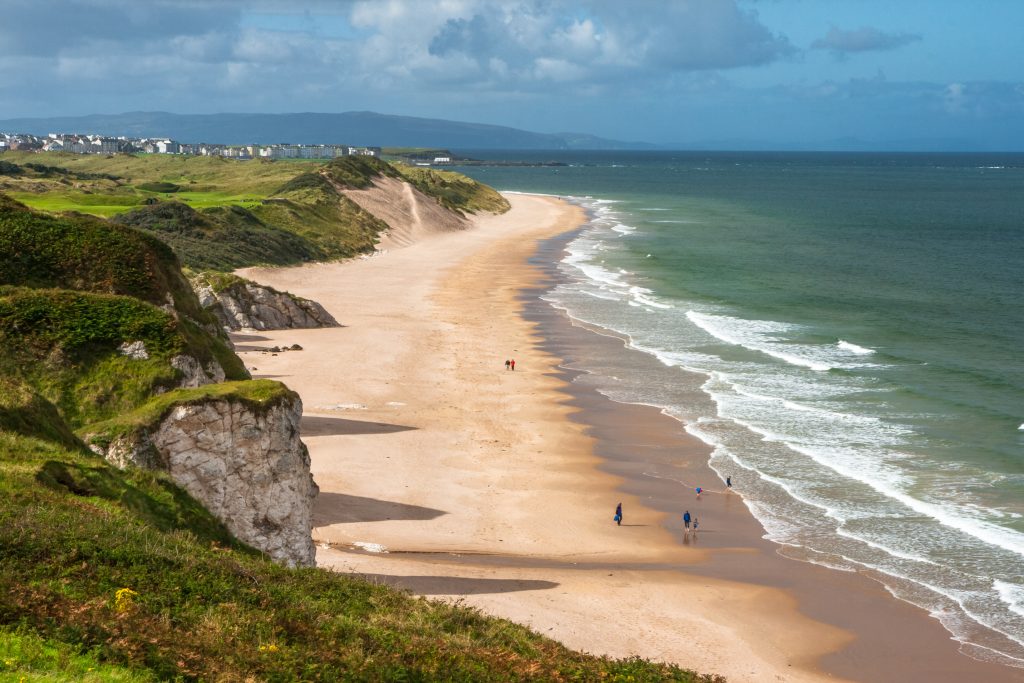
A Regenerative Lens
To Walker, regeneration is about more than soil: it’s a philosophy. “Instead of just take, take, take, you’re giving back in some sort of way… It’s a way of remembering that the way we live can either mirror that extractive system or it can begin to heal what’s broken.”
That lens carries over into how we label food. She’s sharply critical of misleading terms like “grass-fed”: “According to DEFRA, livestock only need to derive 51% of their diet from grass to be sold as ‘grass fed’… that animal could be eating imported soya or be grain fed for half its life.” She draws on insights from her past work and wider campaigning experience to highlight the way language can mislead consumers. “The label would make you think that they have a certain quality of life,” she says. For Walker, clearer labelling is not just a technical fix, but a cultural and ethical issue. “I believe that if you’re a farmer that uses chemicals, you should have that labeled on your food,” she argues, pointing to the need for greater transparency around pesticide and herbicide use as well. It’s all part of making food systems more accountable to the public and the land alike.
Wasted Plenty at The Open
Recently, Walker witnessed firsthand the contradictions of modern food systems when The Open Championship came to Portrush. Despite the massive crowds and bustling local economy, what stayed with her most was the sheer volume of food waste. “There was an inordinate amount of waste from restaurants and food businesses around the area,” she recalls. Businesses had over-ordered, anticipating unprecedented demand, and much of it went unused. “Boxes and boxes of food that was just going to be thrown away – would have been dumped or incinerated.”
Some of the surplus was salvaged through apps designed to reduce waste, but for Walker, it was a stark reminder of the disconnection between production and consumption. “We’ve just completely lost it within the food system. There’s no closed loop there,” she says. “A lot of it doesn’t even end up being consumed by humans. It either ends up as animal feed or in the food waste bin before it’s even bought.”
That experience reinforced her belief in the need for more regenerative and closed-loop models.

The Seeds of Storytelling
Walker’s podcast Your Wild Streets with Roisin Taylor, co-director of UK Youth for Nature, has just released its first teaser. Upcoming guests include Mary Reynolds and Satish Kumar. “It’s nice to get to have conversations with such incredible people. It’s really inspiring.”
For Walker, the podcast is not just a professional project – it’s a creative act of listening and learning. It marks her return to adult conversations after maternity leave, something she admits has been both energising and daunting: “I wouldn’t recommend it though, after you’ve done a year of maternity leave to nominate yourself for a podcast where you have to have adult conversations with people, because I’m so out of practice.”
Still, the podcast gives her space to engage with voices that challenge conventional approaches to nature and land. She speaks with admiration about Reynolds: “She’s a real activist and campaigner who looks at completely throwing out our approach to gardening and to make it native and to make it scrubby and messy and, you know, just a lot more nature friendly. She’s someone who is relentless. And I really admire her for that.”
The podcast, like her writing and campaign work, is part of Walker’s broader commitment to making conversations about the environment more inclusive, more intuitive, and more emotionally resonant. It’s a chance to explore big questions – about land, community, and regeneration – with people who are unafraid to imagine new ways of being.
Alongside this, she’s also launched her Substack. “It’s given me a platform to look at how I’m using nature to navigate times, good and bad,” she says, describing the project as a deeply personal form of storytelling. Central to this is the concept of “wayfinding,” a term that captures how she uses natural symbols and encounters to navigate both outer landscapes and inner shifts.
During postpartum, she experienced a period of profound upheaval, having moved unexpectedly to Bushmills with a newborn. In this unfamiliar setting, nature became her compass. “I go out for walks every day and these kind of symbols have come to me in nature,” she says. One recurring sign was the heron. “I kept seeing a heron all the time… on every daily walk, regardless of the time of day; on someone’s bin, in Alba’s book, in a postcard through the door.” That symbol took on meaning as she researched its mythological and cultural associations: a quiet, persistent guide during a time of uncertainty.
Motherhood and the Sacred & Mundane
If motherhood has sharpened her perspective, it’s also deepened it. “I think language… marries the mundane to the sacred, which I love. And I love taking the time to find the right words, to wayfind through the inner and outer landscapes of my life.”
“The lens of motherhood has given a whole new dimension to writing. Because when I look back at my old writing… it felt like I wasn’t going deeper in myself, whereas motherhood plunged me into that depth.”
That language now shapes how she tells stories to Alba. “I’ve had to make a real effort to consciously buy books or buy animals that are of native wildlife from Northern Ireland… everything’s about farm animals and about farms.”
Toward a Future in Balance
Walker is optimistic but grounded. “Stories bring us back to the essence of who we are… the only way we can navigate [crisis] is through optimism and hope.”
Whether through Nature Remembered, her podcast, or her writing, Alena Walker continues to do what she calls “wayfinding through words.”
It’s a practice rooted in stewardship, imagination, and a new kind of kinship – with land, language, and future generations.
Find out about Alena’s work, and some of her past projects via her website:
alenawalker.com
Discover her writing by subscribing to her Substack:
@alenajwalker
And keep up with the latest news, campaigns and episodes of Your Wild Streets via the UK Youth for Nature website:
ukyouthfornature.org
The Latest Articles
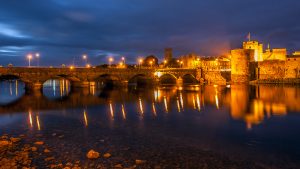
Inni-K on Still A Day: Genuine Irish Songwriting
In the aftermath of touring Still A Day, the singer, composer, and multi-instrumentalist considers music, nature, and what remains once the movement stops.
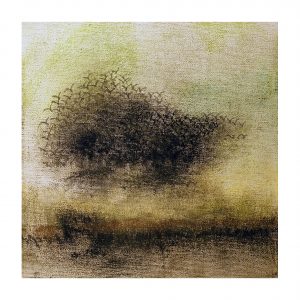
Bob Speers and the Quiet Magic of Ireland’s Bogs
In a room filled with timber, peat, and light, artworks hung on walls are more like fragments of the land itself – weathered, breathing, and alive with memory.
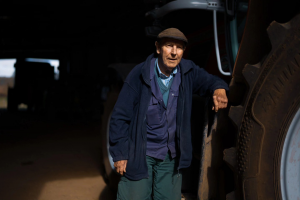
Hernan Farias on Light, Connection and Creative Growth
From the Classroom to the Camera – charting his shift from teaching English in Chile to full-time photography in Northern Ireland.
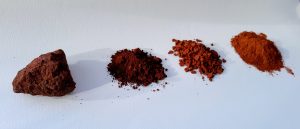
The Colour & Spirit of Time: Tricia Kelly’s Journey with Ócar
Exploring how sixty million years of volcanic fire, weather, and transformation created the red ochre that now colours Tricia’s life and work.
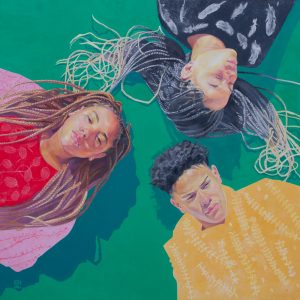
Faith and Colour: The Genuine Art of Beverley Healy
In her imaginative work, paint becomes prayer – a meditation on trust, surrender, and creation, where colour and stillness meet to form something transcendent.

Ruairi Mooney on Creativity, Practice & the Search for Authentic Art
From the North Coast to the Canvas: a journey of resilience, daily practice, and the slow discovery of an authentic artistic voice.
